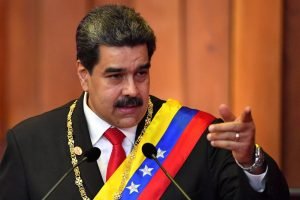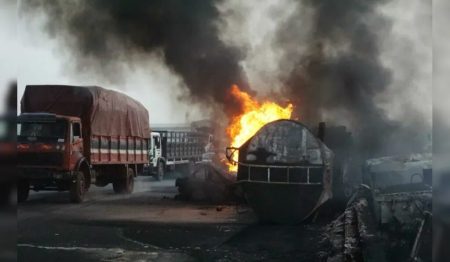
San Cristobal/Caracas — Venezuela’s fuel shortages are causing growing complications for the production and delivery of food to a crisis-stricken nation that is in quarantine to stop the spread of the coronavirus, according to ten food industry sources.
President Nicolas Maduro’s government is struggling to provide fuel to the OPEC nation’s service stations due to chronic refinery problems and U.S. sanctions that have left most trading firms unwilling to ship gasoline to Venezuela.
Venezuela’s food production has plummeted after years of heavy state control over the farming sector, contributing to malnutrition and a humanitarian crisis during six years of economic recession.
Fuel shortages are making matters worse. In the Andean state of Tachira, close to the Colombian border, farmer Gerson Pabon fears he will lose his crops of potatoes and carrots because he cannot get enough fuel to harvest them.
And the wholesalers who buy his wares cannot find diesel to transport goods to capital Caracas, he said.
“How can we harvest our vegetables if we can only buy 15 liters of gasoline? That is not enough to go to the fields and return to the collection center,” said Pabon, 52. “If people don’t eat, it will get worse.”
Humanitarian organizations have for years said Venezuela is suffering widespread hunger due to an economic collapse that has fueled the migration of nearly 5 million people since 2015.
Now, as farmers struggle to distribute their produce, supermarket industry sources said that even stores in and around Caracas have just a few weeks of inventory.
The problem is directly affecting the transport of tomatoes, peppers and onions, all of which are staples of the Venezuelan diet, said Aquiles Hopkins, president of agriculture industry association Fedeagro.
Some food processing plants are limiting operations because workers cannot reach the facilities due to fuel shortages and because finished products cannot be transported.
In rural areas, food production is also being affected.
In western Zulia state, which produces 40% of Venezuela’s meat and milk, some ranchers have stopped milking cows because they have not been able to transport their goods for 12 days, said Armando Chacin, president of ranching association Fedenaga.
U.S. slaps sanctions on unit of Russia’s Rosneft over Venezuela
PROBLEM IS FUEL, NOT CORONAVIRUS
Two food industry executives said that in recent meetings between industry groups and regional military leaders, they were told that gasoline shortages would not likely be resolved soon.
“The biggest problem now is fuel, not the coronavirus,” said one of the food industry executives, who asked not to be identified.
The industry has been able to obtain just a third of the diesel it needs for transportation, the sources said.
The information ministry, which handles media inquiries for the government, did not respond to a request for comment.
Maduro’s government as of March 30 had confirmed 135 cases of the coronavirus and three deaths and has ordered a nationwide quarantine to prevent the virus from spreading.
Venezuela’s fuel imports dropped 45 percent in March with respect to February, according to Refinitiv Eikon data.
State oil company PDVSA exported more than 400,000 barrels of diesel and jet fuel to Cuba in the past week, according to documents seen by Reuters.
That has fueled anger among Maduro’s critics over Venezuela’s continued oil shipments to political ally Cuba, part of a longstanding accord between the two countries.
Follow us on twitter
- Reuters



